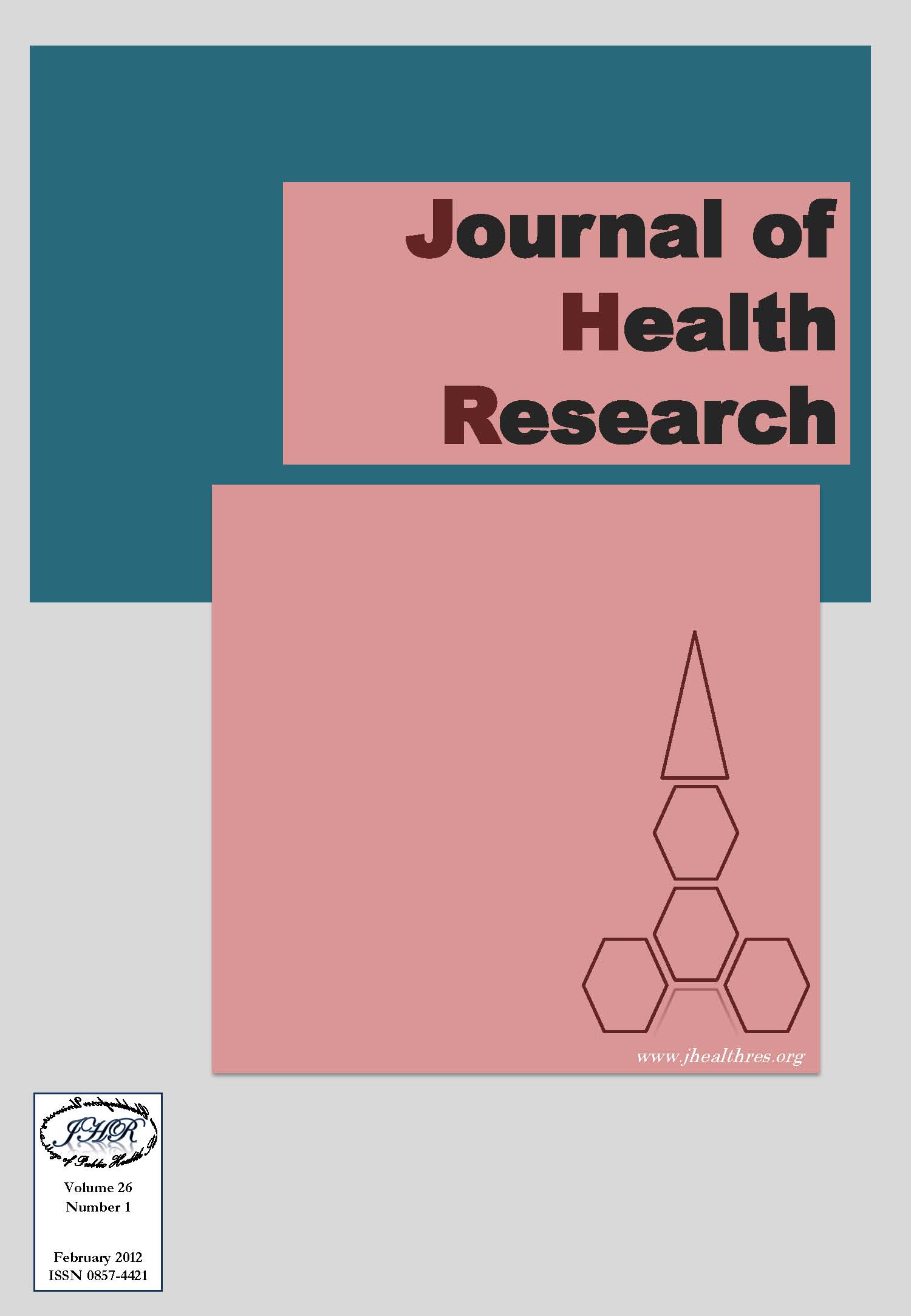Effects of Mucuna Macrocarpa Seed Extract on Rotenone-Induced Parkinsonism Rats
Keywords:
Mucuna macrocarpa, parkinsonism, rotenoneAbstract
Mucuna macrocarpa (MM) seed extract contains high content of L-DOPA, an intermediate precursor of dopamine synthesis. Therefore an anti-parkinsonian effect of MM water extract was evaluated in this study. Rats were induced the motor symptoms of parkinsonism using chronic rotenone treatment (3 mg/kg s.c. 14 days). Then either L-DOPA (6 mg/kg i.p.) or MM extract (equivalent to L-DOPA 6 mg/kg i.p.) was given to rotenone-induced parkinsonism rats for 10 days. Three behavioral tasks were used to examine motor symptoms including the open field study, stepping test and postural instability test. Chronic rotenone exposure impaired motor performance in all behavioral tasks while L-DOPA significantly improved motor symptoms in rotenone-induced parkinsonism rats seen in all behavioral tasks. In contrast, parkinsonism rats received MM extract showed the improvement of locomotor activity in the open field and the performance in postural instability test but not in stepping test indicating lower efficacy of MM extract compared to L-DOPA. Other chemical constituents of the water extract of MM seed and the mechanism underlying the anti-parkinsonian effect should be further investigated.Downloads
How to Cite
Siriwatananukul, P., Rodsiri, R., & Ruangrungsi, N. (2017). Effects of Mucuna Macrocarpa Seed Extract on Rotenone-Induced Parkinsonism Rats. Journal of Health Research, 26(1), 21–24. retrieved from https://he01.tci-thaijo.org/index.php/jhealthres/article/view/84628
Issue
Section
ORIGINAL RESEARCH ARTICLE







